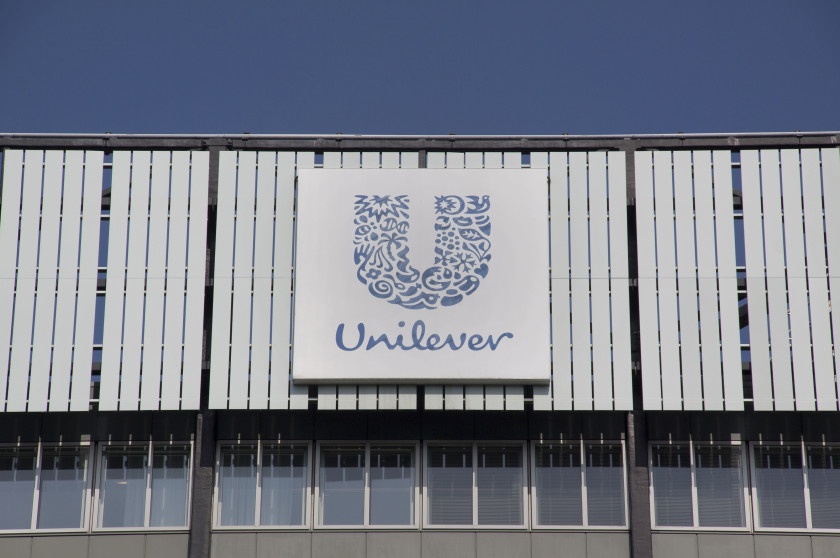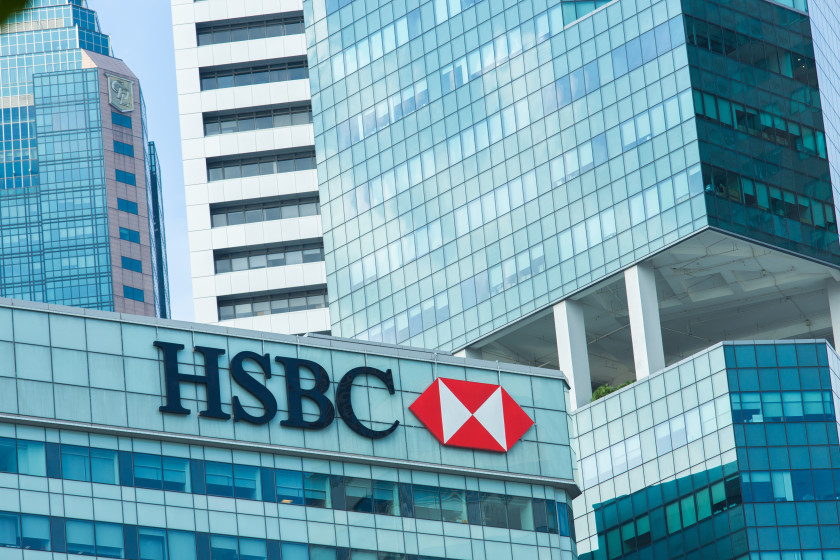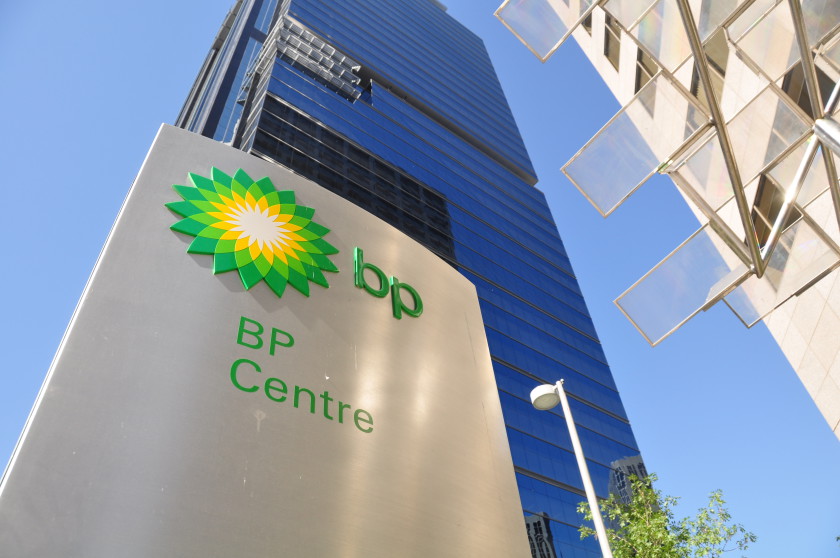- Log in
- Site search

Graduate schemes 2025
Many of the UK's leading employers offer dedicated training programmes for those with a degree - discover the benefits of joining a graduate scheme in 2025, what's involved and how to secure your place
What is a graduate scheme?
A graduate scheme is a structured training programme run by an employer to develop future leaders of their organisation. They usually last between one and two years (although they can be longer).
Graduate programmes are typically available in a number of specialisms, or streams as they're also known, ranging from finance, retail and marketing, to HR, management and law.
What does a graduate programme involve?
The scheme may be focused on a job role or split into time-specific placements, such as spending six months at a time rotating across various business functions, teams and possibly locations. This means that a large degree of flexibility is required.
As a graduate trainee you'll benefit from being handed responsibility from the outset, an opportunity to gain hands-on experience and develop a broad understanding of your chosen profession, as well as receiving support in building key skills.
Schemes are generally oversubscribed each year, with places limited - especially those offered by high profile companies in major industries. You'll therefore have to ensure your application stands out from those submitted by other candidates.
How much will I be paid?
High Fliers' The Graduate Market in 2024 report revealed that the most generous payers from The Times Top 100 Graduate Employers are investment banks, law firms, and consulting firms.
These top employers offer salaries of at least £47,500, with investment bankers able to earn around £55,000.
Which companies run graduate schemes?
With graduate schemes spanning numerous careers and industries, you'll have plenty of options when it comes to choosing an employer:
- Agriculture/environment - Work experience is essential for those looking to enter the agriculture industry, with larger employers such as AB Agri and the National Farmers' Union (NFU) providing training for those seeking graduate opportunities in agriculture . To land a place on a scheme run by one of the major employers in the environment sector, discover how to get an environmental job .
- Charity - While rarer in this sector, some organisations such as Cancer Research UK still run schemes. Read more about getting a graduate charity job .
- Energy and utilities - The oil and gas industry is always on the lookout for new recruits to work in the manufacturing, technical, commercial and corporate operations of global companies such as BP and Shell. There's also the option of getting a graduate job in nuclear energy .
- Engineering - Employers across all industries take on engineering graduates every year. Read about how to become an engineer and get the lowdown on engineering graduate schemes .
- Finance - All the major banks, including Barclays, the Lloyds Banking Group and HSBC have dedicated finance graduate schemes , with finance specialists in demand across all sectors.
- Healthcare/management - If you're looking to work in the healthcare sector at management level, you could consider working for the National Health Service (NHS) by joining the NHS Graduate Management Training Scheme . General management programmes are also available, including consulting graduate schemes .
- Human resources (HR) - Many large organisations, including Accenture, Nestlé and the Civil Service, require graduates to work in their busy personnel departments. See HR graduate schemes .
- Information technology (IT)/sales - Graduate training programmes are also run by IT and telecommunications companies such as Cisco, Capgemini, Fujitsu and Samsung in a range of technical and sales-based roles. Read about tech graduate schemes and sales graduate schemes .
- Law - By following a structured route into the legal profession, you can take advantage of training contracts , which provide the two years of qualifying work experience required to become a solicitor.
- Marketing/media - Another popular and far-reaching field, you could work for a major media company such as the BBC, Sky or Virgin Media O2. There are also general marketing graduate schemes available across all sectors. For creatives, you can explore how to get a creative job .
- Public services/intelligence - If you're interested in getting a graduate job in public services you'll find a number of schemes are available through governmental departments, the police , the intelligence services and the armed forces .
- Retail - The UK's biggest retailers, including Aldi, Asda, Marks & Spencer and Tesco, train their staff through structured retail graduate schemes typically split across various customer-facing and head office roles. There are also opportunities to work in logistics and supply chain management .
- Science and pharmaceuticals - Spanning a number of sectors including healthcare and engineering, science graduate schemes are ideal for careers where you'll get to put your scientific knowledge to good use.
- Transport - Aer Lingus, British Airways (BA), easyJet, Ryanair and Virgin Atlantic seek graduates for their commercial, finance and IT-related airline graduate schemes . You could also consider road and railway careers .
Where can I find out more about employer programmes?
If you've an interest in working for a specific company, in addition to visiting its website you can also follow it on social media. By engaging with the recruiter through popular channels such as Twitter (X), LinkedIn, Facebook and Instagram, you can get a good idea of its culture and values.
By attending in-person or virtual careers fairs and recruitment events while still at university, you'll get to find out about employers you'd be interested in working for and speak to recent graduates about what's involved with a particular scheme.
When do graduate schemes open?
In most cases, you'll be able to apply to join a programme from the end of your second year (June-onwards), with deadlines usually set for the November or December of that year.
However, it's advisable to apply as early as possible, as some organisations fill places on an ongoing basis and close as soon as they're full.
How do I apply?
The first stage of applying for a scheme is often similar to applying for graduate jobs - you'll be expected to fill out an online job application . Guidance relating to CVs and cover letters may also still come in handy.
After this, it's worth delving into the following, as they are considered key stages of the selection process:
- interview tips
- assessment centres
- psychometric tests .
Many employers use social media to share helpful and informal advice with candidates about all aspects of the application process. For example, at the NHS, this ranges from current trainees giving tips on how they prepared for their assessment centre, to alumni sharing general advice on interviews and the graduate team offering pointers on passing online tests.
For information on setting up relevant accounts and how to go about networking with current graduates, see social media and job hunting . You can also get advice on how to improve your LinkedIn profile .
Can I get on a graduate scheme with a 2:2?
While graduate programmes generally expect applicants to have a 2:1 or higher, some employers may be more flexible.
For example, the NHS Graduate Management Training Scheme and all of MBDA's graduate programmes ask for a 2:2. However, the NHS programme expects the degree to be in a numerate subject, while for MBDA the subject(s) accepted will depend on the specific scheme you're applying for.
If you get invited to interview, be prepared to discuss your grade with recruiters. Be positive by highlighting your strength in other areas, and by emphasising work experience or extra-curricular activities that demonstrate you've got the skills employers want . To prepare, you can also run through some example questions and answers .
When do graduate schemes start?
Start dates for these programmes are usually set for the August or September following graduation, but this does vary, as some employers take on new recruits as soon as a vacancy is available.
For instance, the start date for Scottish Power's programmes are stated as early September, while the start date for graduate jobs at RSM UK are set for either January or August, depending on the role.
Will I be offered a permanent job?
It's quite common for graduates to be offered a permanent role upon completion of the scheme, but this is by no means the case with all employers. Therefore, you'll need to check the programme you're applying for to find out where you'll stand afterwards.
What if I don't like my graduate scheme?
The High Fliers report, which analysed graduate vacancies for the 2023/24 year, found that the number of graduate job applications received by leading recruiters had increased by over a quarter (27%) compared to the previous year, particularly in 12 key industries and business sectors.
Therefore, due to such a clamour for places, the dropout rate for graduate schemes will understandably be low. However, if you do decide that the scheme isn't for you, make sure you take time to reassess the situation.
One of the most common reasons for leaving a scheme within the first year is to make a career change , with conversion courses and professional training offering routes into other industries. Read up on how to find a job .
Alternatively, you could contemplate taking a gap year to think about things and experience a new culture.
As you plan your next move, you might wish to revisit choosing a career and explore what can I do with my degree?
Find out more
- Consider 4 routes to take after graduation .
- Discover the 7 ways to improve graduate employability .
- Read about diversity in the workplace .

How would you rate this page?
On a scale where 1 is dislike and 5 is like
- Dislike 1 unhappy-very
- Like 5 happy-very
Thank you for rating the page
- Get involved

UNDP Graduate Programme
The UNDP Graduate Programme is a two-year young talent development programme for recent graduates from UNDP programme countries (those in which UNDP is directly engaged) who possess a Master’s or Bachelor’s degree and an interest in international development.
This programme helps fuel the next generation UNDP workforce while infusing the organization with new and diverse perspectives. Women and/or individuals from minority groups, indigenous peoples and persons with disabilities are encouraged to apply. Graduates who are the first generation in their family to attend university are also strongly encouraged to apply.
It is anticipated that the next recruitment campaign will be launched at the end of 2024. If you are interested in joining our Graduate Programme, please keep an eye on the UNDP Job Page and on our social media channels .

Top Graduate Programmes for International Students
- Click to share on Facebook (Opens in new window)
- Click to share on Twitter (Opens in new window)
- Click to share on LinkedIn (Opens in new window)
Do you want a graduate scheme with a generous starting salary? Heaps of international travel? Or maybe just a fully expensed Audi A4? If so, you should check out these graduate programmes…
1. Unilever

Unilever is one of the world’s most successful consumer goods companies, and currently owns over 400 brands including Lynx, Dove, Hellmann’s and Lipton. As it’s such a broad company, it provides graduate placements in everything from customer development and marketing to supply chain and finance through the Unilever Future Leaders Programme . This is offered in over 50 countries around the world, and aims to bring graduates up to the management level in two to three years. You’ll go through four to six rotations, which you can choose to suit your own personal development, and there may also be opportunities for international rotations during your training. The starting salary is generous, set at £30,000 if you do your training in the UK, and you’ll also get a performance-based bonus and 25 days annual leave. Unilever also provides relocation assistance if you have to move somewhere new.

HSBC ’s global graduate programmes are a great way to start your career in banking. As one of the world’s leading international banks, HSBC annually hires over 500 UK graduates and thousands more across the globe. They offer graduate programmes in four different aspects of the business: commercial banking; global private banking; global banking and markets; and retail banking and wealth management. If you take part, you’ll get an attractive remuneration package including a competitive salary, discretionary pay awards and employee share plans. They also support flexible working. The application process is fairly lengthy and dependent on which global graduate programme you’re applying for, but it usually involves an online assessment, telephone interview, face-to-face interview and occasionally an assessment day. Once you pass, you’ll become part of a global organisation – HSBC has over 7,500 offices in 87 countries.

The TUI Group International Graduate Leadership Programme is a great starting point for those interested in working in the travel industry, as it’s designed to train graduates to become top commercial leaders in just 18 months. The emphasis on international leadership is clear from the recruitment process: graduates must have a second language other than English and at least three months of international experience. In return, you will receive a salary of €38,000 plus bonuses, 30 days annual leave and all expenses paid when you are working abroad. You will need to be flexible, as the scheme itself is broken up into five three-month placements across different business areas and countries within Tui’s portfolio. Recruitment rounds take place in September/October and March/April every year.
4. Heineken

Heineken ‘s International Graduate Programme (IGP) allows successful applicants to complete an 18-month placement in a sector like finance, human relations, marketing and sales, procurement and supply chain. The IGP is geared towards international students, as applicants must have worked, studied or volunteered for at least six months outside of their home country and speak at least two languages fluently (including English). The selection process is rigorous, and involves an online test, three stages of interviews and then an assessment day in Amsterdam. Graduates will more often than not learn on the job rather than via formal training, in keeping with the company’s philosophy. You’ll have three six-month placements in three different countries, and you’ll also be given a mentor from senior management as well as a peer coach from the IGP. Past graduates have completed placements in countries such as Nigeria, Spain, the Democratic Republic of Congo, Russia and, of course, the Netherlands.
5. The ‘Big Four’ of business

If you’re looking for a graduate scheme in the business sector, you should definitely consider a spot with one of the ‘Big Four’: PwC , Ernst & Young , KPMG and Deloitte . Each global corporation offers a high starting salary and will pay to put graduates through the required exams to become a qualified business professional. There are a number of areas of business to focus on, from tax to actuarial or consulting. Getting on one of the Big Four’s graduate schemes is no easy feat. You’ll have to complete numeracy and critical thinking tests, at least two rounds of interviews and sometimes an assessment day before you may be offered a place. Each of the Big Four recruits around 1,000 new graduates every year in the UK alone, making them some of the most prolific graduate employers in the world. EY has replaced PWC as the number one most attractive professional services network to work for, according to a survey of over 250,000 business, IT and engineering students around the world.

Supermarket giant Aldi provides one of the most sought-after graduate schemes, the Area Manager Programme , which offers a generous starting salary of around £42,000 or $80,000 and perks such as a fully expensed Audi A4. With retail management graduate programmes in the UK, Europe, Australia and the US, this leading global shopping chain has much to offer new graduates. Their one to two-year training programme covers every aspect of the retail business, and culminates in graduates becoming area managers responsible for up to four Aldi stores. You’ll definitely work hard for your remuneration package, but no two days will be the same and the experience and opportunities you’ll receive will be invaluable. The UK graduate scheme hires 150 to 200 Area Managers every year.

European RWE has an 18-month International Graduate Programme (IGP) that’s perfect for graduates interested in a global career in energy. You’ll move across the continent from project to project, so you should be flexible and quite adventurous if you want to take part. You could end up working in the UK, Czech Republic, Netherlands, Turkey, Hungary, Poland or Slovakia, but you’ll have a lot of freedom to choose which projects you want to work on. Generally, projects run for three months during the fast-paced scheme. To apply for the IGP, graduates should be educated to Master’s level and have good English and German language skills. There are only four places available each year, and you will need to attend a recruitment day in Germany too.

BP employs 80,000 people across 80 countries, so it truly is a global company. There are three main graduate programmes to apply for: the Upstream Challenge programme; the Downstream Challenge programme; and the Integrated Supply and Trading (IST) graduate programme. The Upstream Challenge programme (known as the ‘challenge programme’) involves a hands-on, practical learning approach, designed to push you to your limits and get you stuck into your chosen field from day one. Sectors include engineering, commercial, science, project management and health & safety, and the average graduate takes around three years to complete it though there is no set time period. BP’s Downstream Challenge programme is rotational, and is designed to expose graduates to many different sectors of the business over at least three years. The focus is on training and practical development, and sectors include chemical, mechanical or electrical engineering, supply chain management, sales & marketing, and commercial. Additionally, BP has two Integrated Supply and Trading graduate schemes if you’re interested in working as a commodities trader or in a commercial capacity. Salary and benefits packages vary depending on which programme you join and where in the world you are.

WPP is one of the world’s largest communications and media organisations. They have 3,000 offices across the globe, with key centres in the UK, US, Australia and East Asia. Since 1995, WPP have provided a rotational Fellowship for graduates, encompassing a range of marketing disciplines. The programme involves three consecutive one-year placements in different WPP companies, providing you with a wealth of experience. In fact, you’ll have the option of spending each placement year on a different continent – perfect for international students. Upon completion of the Fellowship, WPP will offer participants a position within the company that matches their individual skills. That said, the Fellowship programme is still really competitive, as WPP hires between eight and 12 graduates a year out of around 1500 applicants.
10. Clifford Chance
The international law firm Clifford Chance is part of the UK’s ‘Magic Circle’ of law firms, meaning it’s among the best around. It provides graduate opportunities in 26 countries across the globe, in everywhere from Indonesia to Morocco. If you get a training contract , you’ll get to work in several different areas of law and will get a great overview of how the firm operates as a whole. Clifford Chance’s head offices are located in London, New York City and Hong Kong. They have their own highly acclaimed training academy, meaning graduates can learn everything they need to succeed in their career. You will have to successfully get through an assessment day before you will be offered a place, but this will give you a chance to bond with future colleagues and ask a lot of questions. If you’re interested in a career in law, here’s How To Become A Lawyer In The UK .
Amazing to see Aldi in there
Comments are closed.
Everything you need to know about graduate schemes
Looking at your career options post-university? Applying for a graduate scheme could be a great springboard to success…
Finding employment is top of everyone’s priority list, post-university. In fact, knowing that you can get a good job after you graduate is a big part of deciding what you study and where you study. Here’s where graduate schemes come in...
Graduate schemes are work-based training programmes that typically last between one and three years. They are real jobs – with a full-time salary – but graduates will also be given training and mentoring alongside their work.
Graduates typically carry on working for the company after their scheme has ended, though they are free to move on if they wish or a place is not available for them.
Graduate schemes offer a springboard into a good job straight from uni, and positions are up for grabs at some major companies.
So as well as sending a raft of applications and keeping your ear to the ground, check out our one-stop guide to these schemes and your best way of getting on one…
They’re really helpful
The great thing about graduate schemes is that they provide invaluable experience of a professional workplace. And as a recent graduate, they help you hit the ground running.
Here’s the thing. You can get “on the spot” training and learn skills in various jobs. But unless you’re really lucky, those won’t be tailored to your needs as a graduate.
So, this is where graduate schemes come in:
The Civil Service Fast Stream , for example, provides graduate level grounding in a range of areas, preparing you for a possible career in local or national government.
Or, if you see your future in the classroom, Teach First enables you to build essential communication skills and get a vital first step on the education ladder.
These company programmes aren’t guaranteed to lead to a job, but they make you highly attractive to other employers, and also boost your salary prospects.
The other big plus, is that you get to try out a job or career path (sometimes more than one), before fully committing. It looks much better on your CV if you leave a company upon completion of a graduate scheme, rather than attempting to switch between ordinary jobs.
There are lots to choose from
There are hundreds of graduate schemes available in the UK. Whether you want to work in sales or marketing, finance or engineering, healthcare or the legal industry – you can find a scheme that fits your career aspirations.
Here’s just some of the big-name UK and International companies that offer graduate schemes:
As one of the UK’s fastest growing retail chains, Lidl’s graduate schemes run in several areas of the business: management, buying, retail and head office.
The pharmaceuticals giant offers a two or three-year ‘Future Leaders Programme’ where you’ll learn about and make an impact in your choice of business areas, including: finance, HR, technology or environment and sustainability. They also have a pharmacy pre-registration programme for graduate pharmacists.
Fancy yourself as the next James Bond? If the answer is yes, then you should apply to MI5’s graduate scheme. With plenty of training and further career opportunities you’ll be “shaken, not stirred” in no time”
Voted best Graduate Employer every year over the last 15 years, PWC is a popular graduate scheme amongst students. They offer placements in legal, tax, auditing, consulting and IT. programmes last for five years and offer you the chance to study for specific qualifications alongside earning a great salary.
One of the world’s biggest banks offers a variety of finance based graduate schemes in global banking, commercial banking and retails banking. The good news is a degree in economics or other finance related subjects is not needed to apply (though it would undoubtedly help).
The NHS offers graduate schemes across a number of areas, including: health analysis; human resources management and finance management.
They’re inclusive
You may think that only the top students get onto graduate schemes. This isn’t the case today, as many employers seek to hire the right person rather than the best grade.
Typically though, most employers seek students who have gained a 2:1 or higher at university for their graduate schemes. However, some companies will also accept graduates with a 2:2 if they have relevant work experience to add to their application.
What are you waiting for? If you feel you’re the missing ingredient a company is looking for, then put your name forward and show them what you’re made of.
Should numbers be your thing then Ernst & Young have their own tests to determine the best graduate candidates. As one of the “Big 4” accountancy firms, this is a golden opportunity.
Remember that top qualifications are desirable, but it’s the individual employers look for. Uni is about more than simply getting a piece of paper to prove your worth.
They’re hard work to get in on
As you might expect, getting onto a graduate scheme is no walk in the park. You could find yourself attending things like group interviews, as well as filling in forms.
In it to win it - Having an inside perspective on the process is very important. Different companies have different approaches to whittle down the top talent.
Once you’ve jumped all the hurdles, the final stage is a one on one interview. Everything boils down to this moment, and you have that one time to shine.
Knowing what to expect from an interview is a no brainer. There are plenty of resources online to help you prepare for these, some of which feature real life examples .
They’re popular
It won’t surprise you to learn that competition for graduate schemes is fierce, so in addition to being prepared you really have to strike that iron while it’s blazing hot.
Keep your eyes peeled. Sites like Milkround give you the lowdown, but there are also long-established places like The Guardian, which have a history of finding graduates jobs.
Timing is everything. The optimum period for applications is in the later part of the year, between September and Christmas. Company websites contain all the info.
Be patient! It takes the best part of a year for the process to run its course, so if you’re expecting a job fast then you might be best applying for other things at the same time.
With a range of opportunities on offer, and high quality training from some of the best business brains, graduate schemes form the perfect transition between uni and work.
Similar articles

YOUR UCAS POINTS 0
Please wait

COMMENTS
Graduate schemes (also known as training schemes) offer a whole host of benefits. They're one of the most popular career routes to take after uni. This guide explains everything you need to know about graduate schemes, including the biggest perks and drawbacks of doing them.
A graduate scheme is an entry-level job with an employer that doubles in function as a training program, designed to introduce you to multiple areas of the company and build up your experience and knowledge.
View all graduate schemes. Many of the UK's leading employers offer dedicated training programmes for those with a degree - discover the benefits of joining a graduate scheme in 2025, what's involved and how to secure your place.
The UNDP Graduate Programme is a two-year young talent development programme for recent graduates from UNDP programme countries (those in which UNDP is directly engaged) who possess a Master’s or Bachelor’s degree and an interest in international development.
Do you want a graduate scheme with a generous starting salary? Heaps of international travel? Or maybe just a fully expensed Audi A4? If so, you should check out these graduate programmes…
Graduate schemes are work-based training programmes that typically last between one and three years. They are real jobs – with a full-time salary – but graduates will also be given training and mentoring alongside their work.